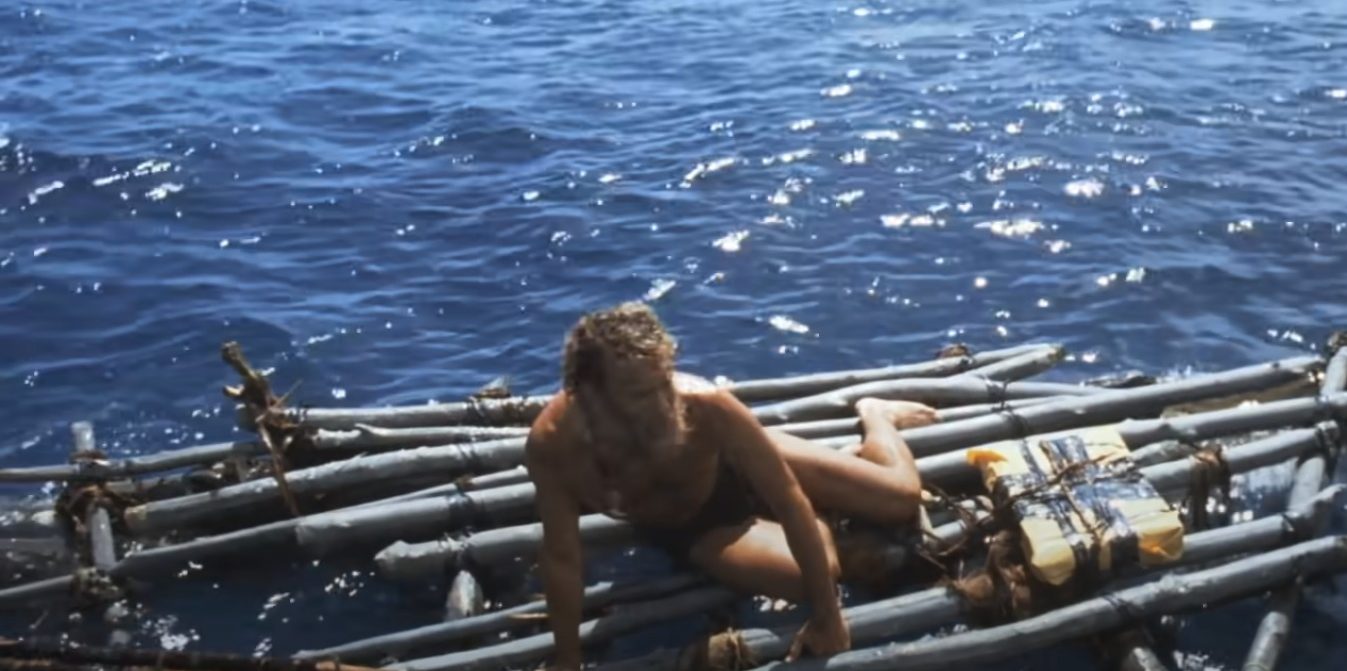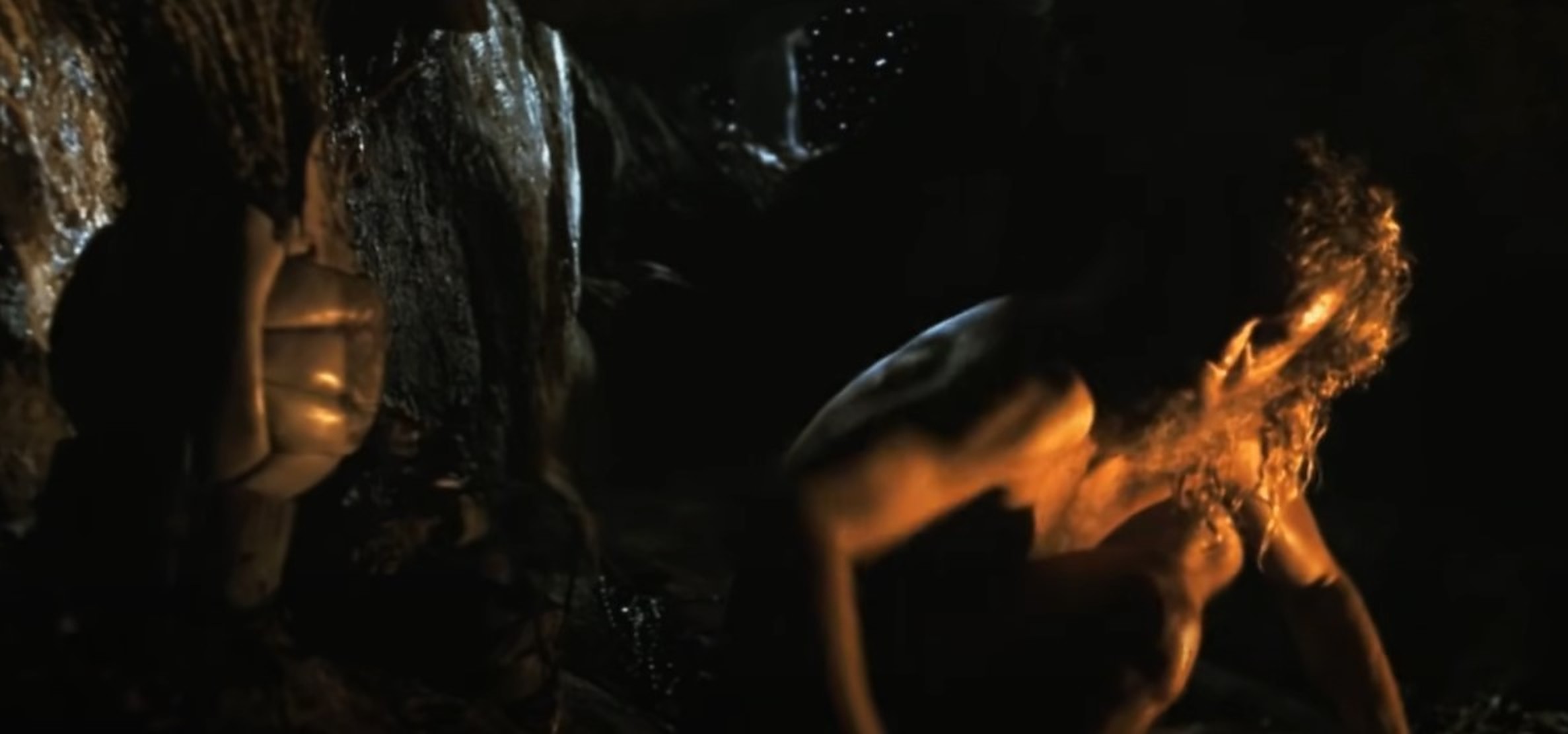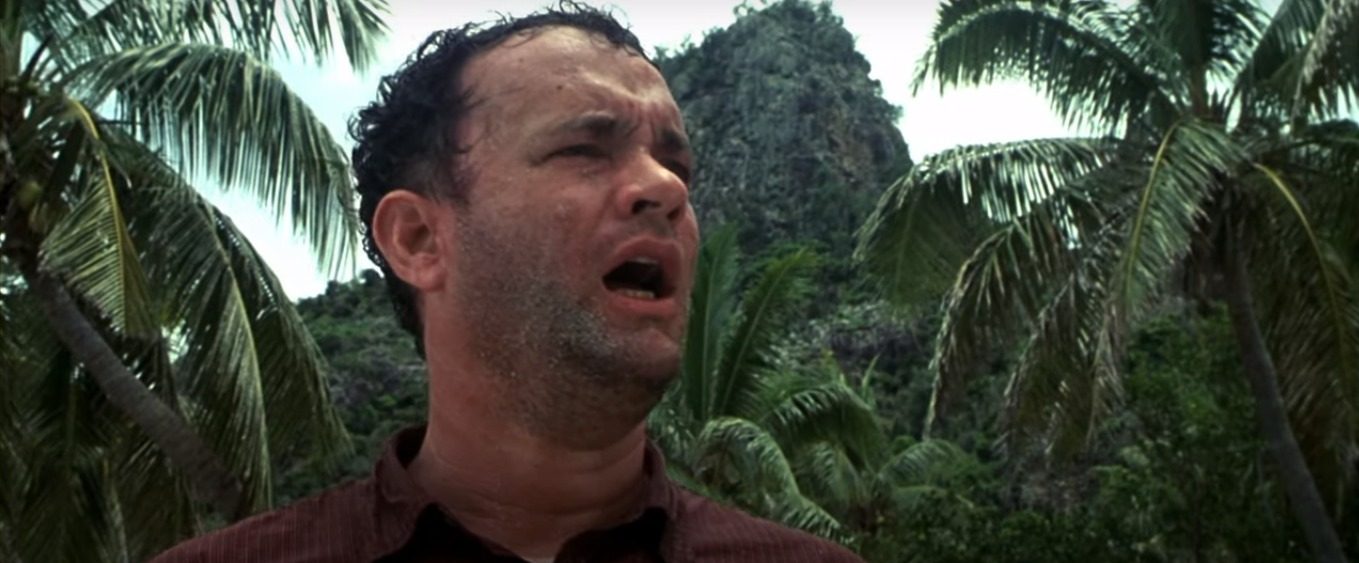Robert Zemeckis’ adventure drama movie ‘Cast Away’ follows FedEx employee Chuck Noland (Tom Hanks), who gets stranded on an island after his plane goes down in the Pacific Ocean. Left alone with only a few packages on the deserted island, he is forced to survive in complete solitude. Chuck goes through many harrowing experiences during his time on the island.
For his remarkable portrayal of the protagonist, Tom Hanks was nominated for an Oscar. The 2000 film traces a remarkable story of survival that seems to have a ring of truth to it, as, after all, there have been many instances of people getting marooned. Let’s take a look at whether ‘Cast Away’ is derived from one such incident or not.
Is Cast Away Based on a True Story?
No, ‘Cast Away’ is not based on a true story. Originally adapted from a script penned by William Broyles Jr., the story seems to have evolved through contributions from Zemeckis, Broyles, and lead actor Tom Hanks. In a 2017 Actor Roundtable with The Hollywood Reporter, Hanks described how each of the aforementioned three brought a part of the story, which added to the finished whole. The actor also revealed that he embarked on the project to examine the concept of a person living alone for years and the effects it might have on said individual.

Moreover, it apparently took six years for the three to come together and give form to the idea. Another source of inspiration was an article about FedEx that Hanks read, which got him wondering what would happen if one of the many cargo planes flying over the Pacific Ocean were to crash. This is precisely the scenario that the film depicts, but if you are curious, there don’t seem to be any real-life incidences of FedEx employees ever getting marooned on an island.
Despite the movie’s fictional narrative, some serious groundwork and thought went into the script, which is why it all seems so realistic. As part of his research, Broyles actually stranded himself for a week on an island in the Gulf of California AKA the Sea of Cortez to experience firsthand the challenges the protagonist, Chuck, would face. Apart from honing survival techniques, it was here that Broyles came across a washed-up Wilson volleyball, which became Chuck’s iconic companion.
Interestingly, Hanks further divulged in the ‘SmartLess’ podcast in 2021 that the popular volleyball was seemingly named after his wife, Rita Wilson. “[‘Cast Away’] was written by Bill Broyles, and that movie took about six years to figure out. Bill Broyles and I started talking about it, and we didn’t shoot it until six years later. He came up with the idea of a volleyball, and he named it Wilson in honor of my beautiful bride,” he said.

The movie examines the mental and physical changes that the lead character undergoes during his time on the island, the epiphanies and joys of things we take for granted, and the process of readjusting to living everyday life as part of society after having been removed from it for so long. Despite some very believable aspects, ‘Cast Away’ is in itself a work of fiction. According to Broyles, it focuses on exploring not just the physical but also the mental and spiritual challenges faced by a solitary man pitted against nature.
Perhaps one other source of inspiration could be the story of Alexander Selkirk, a real-life 18th-century Scottish sailor who was stranded for four years (the same amount of time Chuck is marooned in the movie). According to accounts, Selkirk developed several survival skills in his time on the island, similar to Chuck’s experience. Though it can’t be confirmed that ‘Cast Away’ draws directly from it, Selkirk’s story is widely known to have inspired Daniel Defoe’s iconic adventure novel ‘Robinson Crusoe.’
‘Cast Away’ is essentially driven by a fictional idea that is masterfully executed, and the story presents a remarkable situation yet still in the realms of possibility. Through the fictitious plot, the filmmakers explore the intense repercussions of extreme solitude. ‘Cast Away’ tries to depict the experience of a stranded man realistically, and since most of us won’t know what it feels like firsthand, we might as well believe the movie.
Read More: Where Was Cast Away Filmed?


You must be logged in to post a comment.